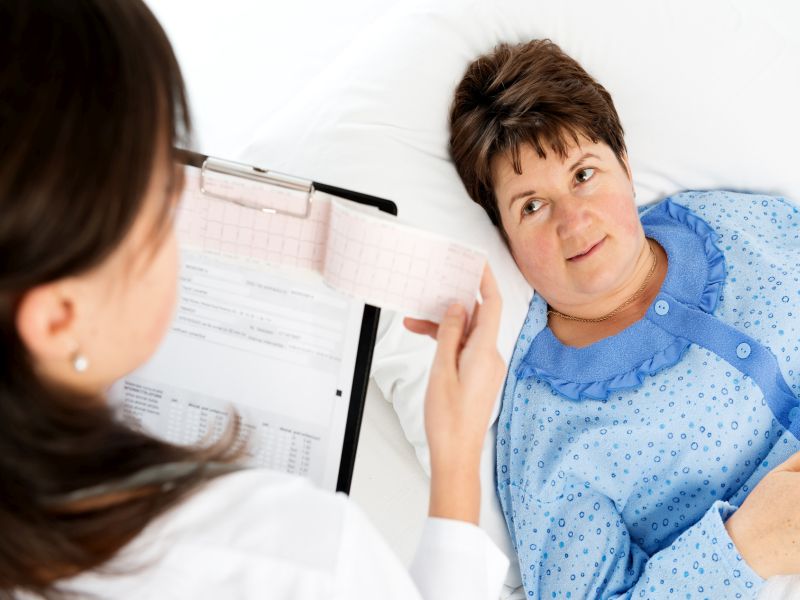
WEDNESDAY, Sept. 19, 2018 (HealthDay News) — The early symptoms of ovarian cancer are often confused with less serious issues, making successful treatment less likely, a cancer expert warns.
Ovarian cancer is called a “silent killer.” That’s because many women are diagnosed too late, said Dr. David Fishman of NewYork-Presbyterian Queens Hospital in New York City.
“Ovarian cancer takes the lives of far too many women, because of misdiagnosis, and a lack of awareness that all women are at risk of developing ovarian cancer,” said Fishman, director of gynecologic oncology at the hospital.
It’s important for women to know their risk of developing this deadly disease, and to recognize its earliest warning signs, Fishman said.
More than 250,000 women around the world are diagnosed with ovarian cancer every year, and 140,000 die from it, according to a hospital news release.
Fishman offered the following five facts about this type of cancer that every woman should know:
- Don’t ignore symptoms. Ovarian cancer’s signs may be mild or easily mistaken for other problems. They may include bloating, belly pain, feeling full quickly, more frequent urination, nausea or indigestion, weight gain, shortness of breath and back pain. If you notice these symptoms for more than a week, talk to your doctor and ask about any problems with your ovaries.
- Pap smears won’t help. This test is used to help diagnose cervical cancer; it does not detect ovarian cancer.
- Every woman is at risk. One in 75 women will develop ovarian cancer but all women are at risk for it. Those who’ve had breast cancer or other forms of cancer in the past or have close relatives who have had it are at higher risk. There are also at least 100 genes linked to an increased risk for ovarian cancer. A genetic counselor can help you determine if you have any of these genes. Women who are infertile, obese or older than 70 are also at higher risk.
- Lifestyle choices matter. Certain lifestyle choices are related to a lower risk for ovarian cancer. They include following a healthy, low-fat diet, giving birth and using birth control. Having a tubal ligation or preventive surgery to remove the ovaries and fallopian tubes can also reduce the likelihood of developing ovarian cancer.
- Early stage ovarian cancer is very treatable. The disease is classified as stage 1 if the cancer is confined to the ovaries. The average five-year survival rate at this stage is 90 percent. It’s critical for women to discuss any worrisome symptoms with their doctor as soon as possible.
— Mary Elizabeth Dallas

Copyright © 2018 HealthDay. All rights reserved.
SOURCE: NewYork-Presbyterian Queens, news release, Sept. 14, 2018






Leave a Reply